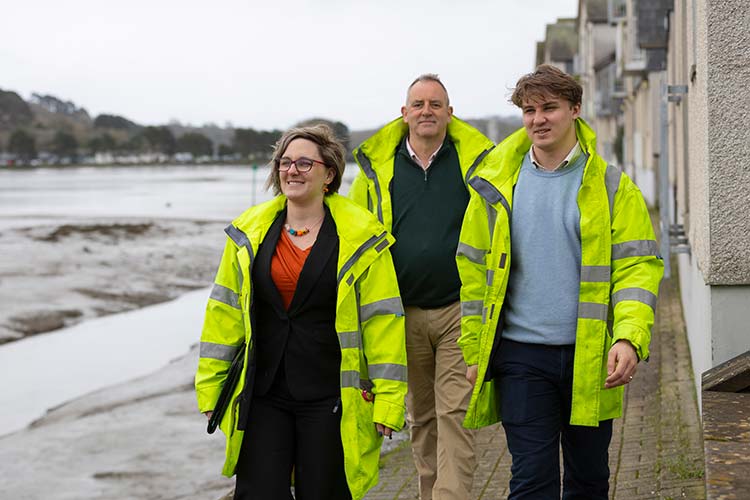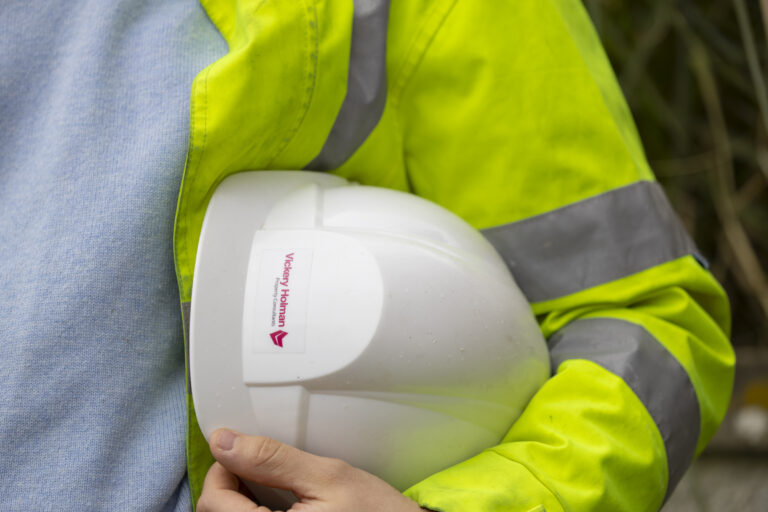As Chartered Building Surveyor and Head of Building Surveying Litigation, Kirsty Worden has written a guide to the role of building surveyors as expert witness.
What Does a Building Surveyor Acting as an Expert Witness Actually Do?
I am frequently instructed as an expert witness in property and construction dispute – a role I genuinely enjoy. Acting as an expert witness is challenging, intellectually stimulating, and deeply rewarding because it combines technical expertise with the responsibility of helping courts and tribunals reach fair, informed decisions.
Unlike typical surveying work, this role demands independence, clarity, and a rigorous approach. My overriding duty is to the court, not to the party instructing me. Every opinion I provide must be impartial, evidence-based, and presented in a way that simplifies complex technical issues for non-specialists. That responsibility is something I take very seriously.
What Happens During Instructions?
When I am instructed, the process involves several key stages:
1. Reviewing Documentation
I start by examining all relevant documents such as titles, deeds, drawings, schedules of work, and correspondence. This helps establish the factual background and identify the issues in dispute.
2. Site Inspection
A detailed inspection of the property or boundary often follows. This may involve measuring, photographing, and assessing the condition of works, boundaries, or defects.
3. Technical Analysis
This is where the real challenge lies, and it varies depending on the nature of the dispute:
For Boundary Disputes:
I analyse title deeds, Land Registry plans, and historical mapping to establish the likely legal boundary position. This often involves reconciling discrepancies between physical features on site and documentary evidence. Accurate measurement and interpretation of plans are critical, and I may need to consider long-standing occupation or boundary features.
For Building Disputes:
I assess whether construction works meet contractual obligations, statutory requirements, and industry standards. This can include investigating defective workmanship, identifying causes of structural or water ingress issues, and reviewing compliance with building regulations. If required, I also evaluate the cost implications of remedial works.
4. Report Preparation
The expert report is a critical document. It must comply with Civil Procedure Rules Part 35 (CPR 35), which sets out strict requirements for expert evidence in litigation. A CPR 35-compliant report includes:
My qualifications and experience.
- A clear statement of independence and duty to the court.
- A detailed explanation of the methodology used.
- Findings and opinions supported by evidence.
- A declaration confirming compliance with CPR 35 and understanding of the expert’s duties.
This report is designed to help judges, arbitrators, or mediators understand complex technical issues in plain language.
Single Joint Expert Instructions
In some cases, the court may order the appointment of a Single Joint Expert (SJE) – one expert instructed by both parties. This approach is intended to reduce costs and avoid conflicting opinions. Acting as an SJE requires even greater impartiality and transparency. I liaise with both parties, ensure all relevant information is considered, and produce a report that reflects a balanced, independent view.
Why I Love This Work
Every instruction is different. One day I might be investigating defective building works; the next, resolving a boundary dispute or assessing compliance with building regulations. These challenges keep me engaged and constantly learning. I take pride in delivering reports that are clear, robust, and genuinely helpful to the decision-making process.
If you are involved in a property or construction dispute and require an experienced, impartial expert witness, please get in touch. I am always happy to discuss how I can assist in resolving complex technical issues.




